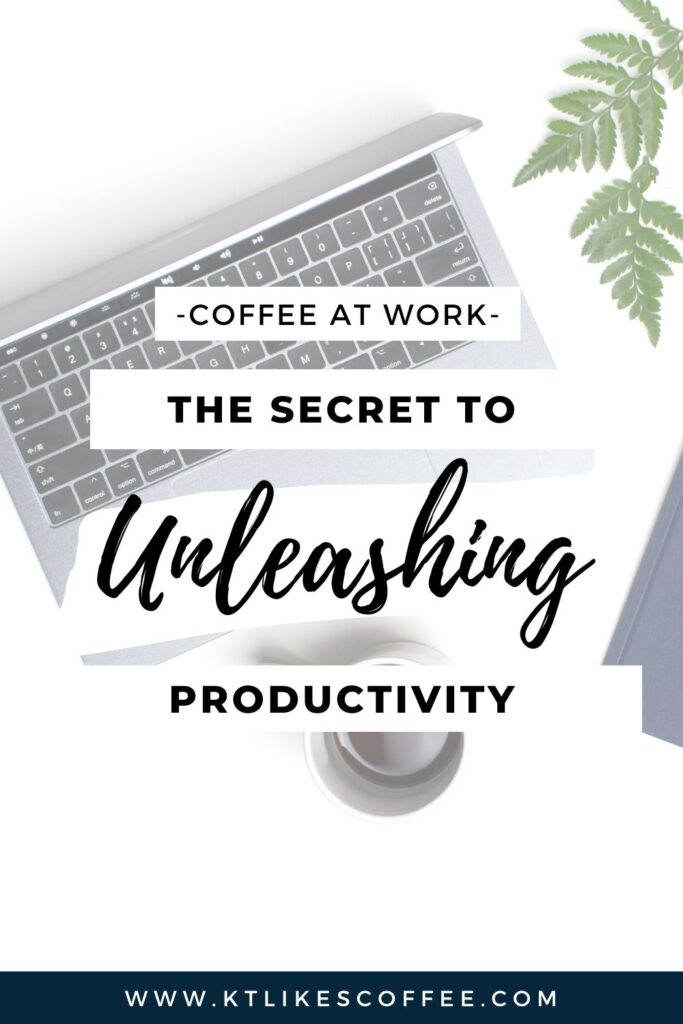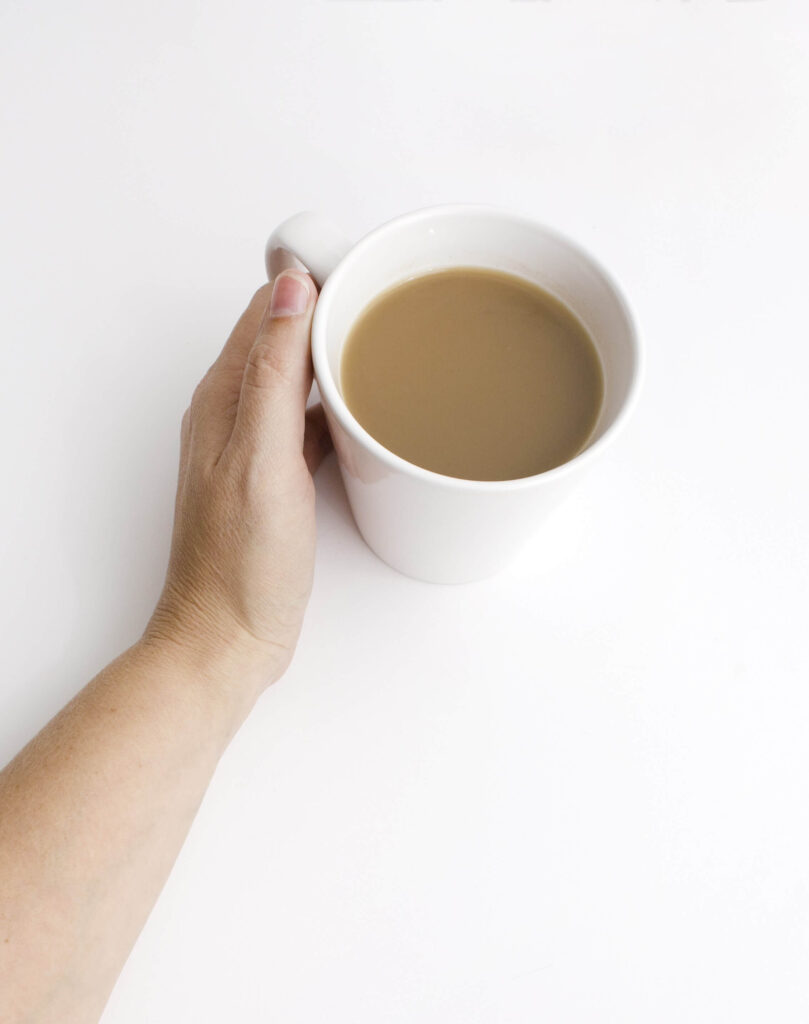For centuries, coffee has been a beloved companion for countless individuals as they navigate the challenges of the workday. But what makes drinking coffee at work such a potent combination?
Beyond the familiar aroma and comforting ritual, coffee has a myriad of benefits that go beyond its ability to simply wake us up. It holds the power to sharpen our focus, elevate our mood, and enhance overall productivity.
In this article, we’ll dive into the remarkable benefits and potential drawbacks of this dynamic duo, uncovering the secrets behind its ability to boost productivity and transform the workplace.
Prepare to be surprised as we unveil the lesser-known advantages of coffee in the professional realm. So grab your favorite mug and join me on this stimulating journey of discovery and why adding more coffee to your workday can be a good thing!

Five Benefits of Drinking Coffee at Work
1. Increased Focus and Alertness
Drinking coffee at work can help increase focus and alertness.
The caffeine in coffee is a natural stimulant that can help improve cognitive function and mental performance.
This can be especially beneficial for those who need to stay focused and productive throughout the workday. Studies have shown that caffeine can improve reaction time, attention, and memory, making it easier to stay on task and complete work efficiently.
2. Improved Mood and Energy
In addition to increased focus and alertness, coffee can also help improve mood and energy levels.
The caffeine in coffee can boost energy levels and reduce feelings of fatigue, making it easier to stay motivated and productive throughout the day.
Coffee has also been shown to have mood-enhancing properties, helping to reduce feelings of stress and improve overall well-being.

3. Social Benefits
Drinking coffee at work can also have social benefits.
Coffee breaks provide an opportunity for coworkers to socialize and build relationships, which can help improve workplace morale and productivity. Additionally, coffee breaks can help break up the monotony of the workday, providing a much-needed mental break and helping to reduce feelings of burnout.
Some companies even have virtual coffee breaks, which encourage those who work from home to take a break and just get to know their coworkers.
4. Improved Creativity and Problem-Solving
Coffee has been linked to improved creative thinking and problem-solving skills.
The combination of heightened focus and increased mental alertness that coffee provides can help you think more critically, generate fresh ideas, and find innovative solutions to complex problems.
Specifically, consider the Light Roast Ethiopia Yirgacheffe from Peak State.
A mushroom coffee crafted to promote cognitive function and brain health, this was my favorite from Peak State and could be a great coffee at work to increase your cognitive thinking.
5. Mental Break and Stress Reduction
Taking a break with a cup of coffee can serve as a much-needed mental escape from the demands of work.
It allows you to step away from your desk, recharge, and reset your mind.
This break can help reduce stress levels and prevent burnout, ultimately improving your overall well-being and enhancing your productivity when you return to your tasks.
Overall, drinking coffee at work can provide many benefits, including increased focus and alertness, improved mood and energy levels, and social benefits.
That said, it’s important to remember that excessive caffeine consumption can have negative side effects, such as jitteriness and insomnia. So it’s always a good idea to consume coffee in moderation and be mindful of your caffeine intake.
Four Potential Drawbacks of Drinking Coffee at Work
1. Jitters and Anxiety
Drinking coffee at work can cause jitters and anxiety in some people. This is because coffee contains caffeine, which is a stimulant that can increase heart rate and blood pressure.
When consumed in large amounts, caffeine can cause nervousness, restlessness, and anxiety.
This can be particularly problematic for people who are already prone to anxiety or who have high levels of stress at work.
If you’re sensitive to caffeine or looking to reduce your intake, explore alternative coffee options such as decaf or herbal coffee blends. These alternatives can still provide the comforting ritual and flavor of coffee without the stimulating effects of caffeine. Some of my favorite alternatives include:
- Decaf Coffee – although it technically still has some caffeine, it’s minimal (averaging 2-15 mg per 8 oz). I think Dunkin’ has a pretty good decaf option for drip coffee makers. And, I adore Explorer Cold Brew, which has an excellent no-caffeine cold brew.
- French Chicory – this specific product featured can be brewed in any kind of coffee maker, including drip and espresso machines.
- Earl Grey Tea – typically Earl Grey has around 50 mg of caffeine per 8 oz cup, so still a significant amount, but much less than coffee. You can always opt for decaf Earl Grey too!
2. Sleep Disruption
Another potential drawback of drinking coffee at work is sleep disruption. Caffeine can interfere with sleep by keeping people awake at night.
This can be especially problematic for people who work long hours or who have early morning shifts. If people consume too much coffee during the day, they may find it difficult to fall asleep at night, which can lead to fatigue, irritability, and decreased productivity at work.
Avoid having coffee too late in the afternoon to prevent interference with your sleep. Most research suggests anything after 2 or 3 pm is too late based on a 10 or 11 pm bedtime.

3. Dehydration
Caffeine in coffee is a diuretic, which can lead to dehydration if consumed excessively. Dehydration can result in headaches, fatigue, and decreased focus, negatively impacting your work performance.
It’s important to balance your coffee intake with water consumption throughout the day to stay hydrated. Pair your coffee with water to maintain optimal hydration levels. You could always opt for a hydrate mixer of some kind too. Check out Coffee Over Cardio for information on their hydrate powders, which I frequently use myself.
4. Dependency
Finally, drinking coffee at work can create a dependency on caffeine. Over time, you may find you need to consume more and more coffee to achieve the same level of alertness and productivity.
This can lead to a cycle of dependency, where people feel that they cannot function without coffee.
However, dependency on coffee isn’t necessarily a bad thing in and of itself. It can be problematic if you are unable to consume coffee for some reason, such as during a business trip or if you are trying to cut back on caffeine for health reasons.
One tip to prevent caffeine dependency is to incorporate periodic coffee-free days into your routine. This can help reset your tolerance levels and reduce the risk of needing increasing amounts of caffeine to achieve the desired effects.
Coffee and work are the perfect pair and how many employees choose to start their work day.
While coffee can provide a boost of energy and productivity at work, it is important to be aware of the potential drawbacks.
People who are prone to anxiety or who have trouble sleeping should be cautious about consuming too much coffee, and everyone should be mindful of the potential for dependency. Too much of a good thing can be a bad thing when it comes to coffee.
How many cups of coffee do you typically drink throughout the workday? Tell me about your coffee and work habits in the comments below!







